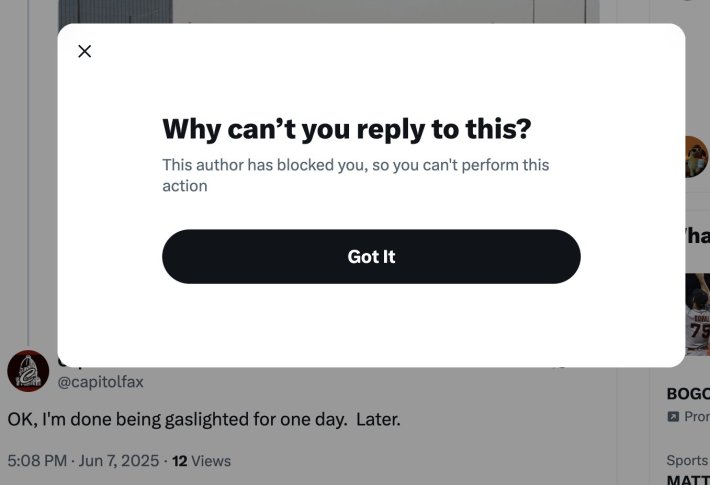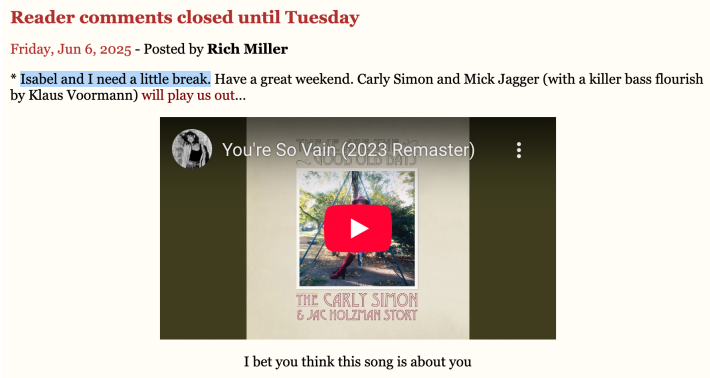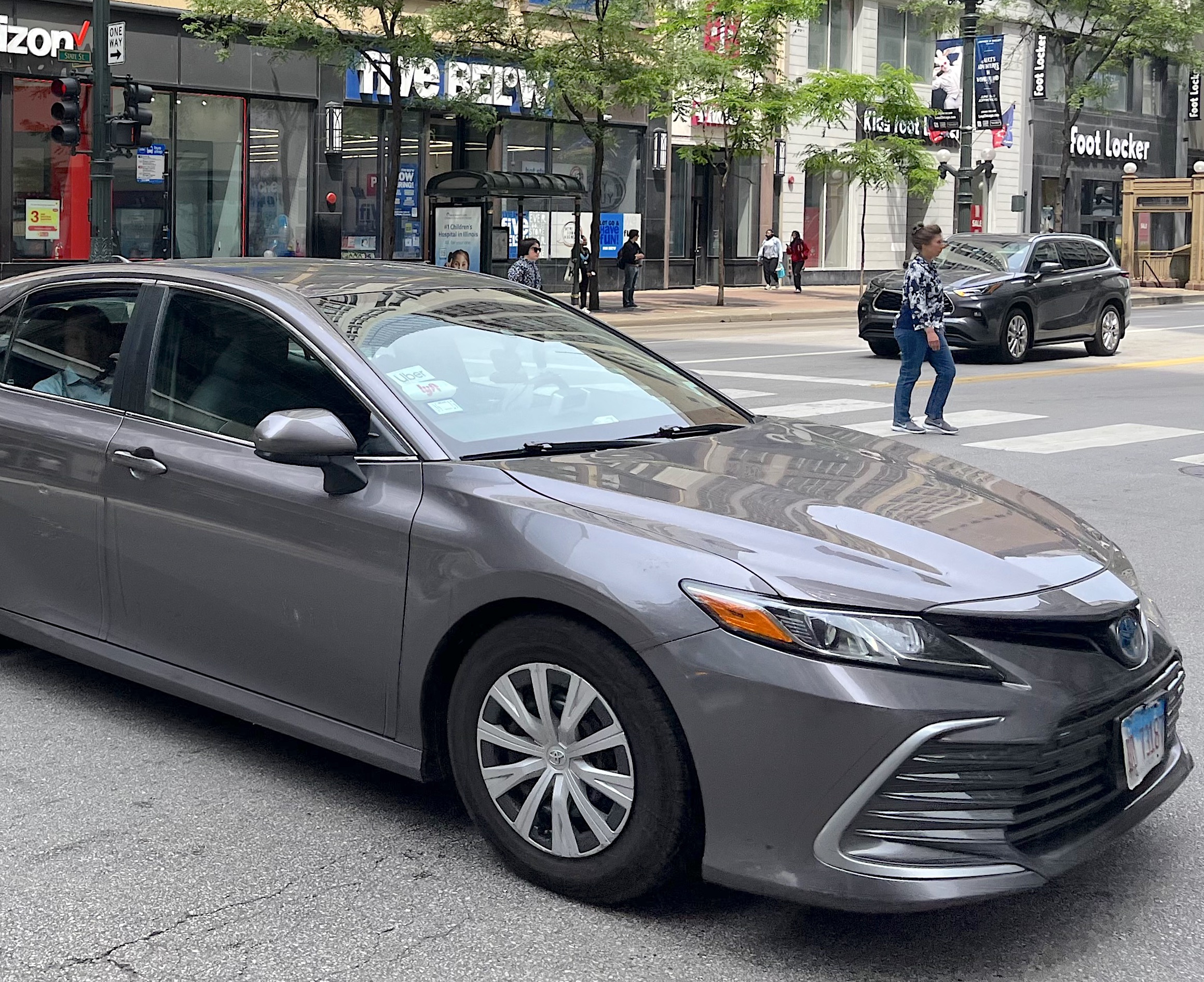
Update 6/17/25, 10:30 PM: Today the statehouse news website Capitol Fax ran a blog post supposedly debunking this guest op-ed . After publishing his piece, Capitol Fax Editor Rich Miller stated in his comments section that Streetsblog Chicago was "doing harm by spreading misinformation/disinformation." Ellen Steinke, the author of this SBC article, provided a response to Miller's criticisms, posted at the end of her piece. The Capitol Fax post seemed like a very odd turn of events, given recent interactions I've had with Rich, which I discuss at the bottom of this webpage. - John Greenfield, editor
Article by Ellen Steinke
Ellen Steinke is a Chicago-based writer focused on transit, civic engagement, and systemic reform, with a background in science, comedy, and theology.
After months of negotiations, hearings, and community organizing, the most ambitious transit funding and reform bill Illinois has seen in decades was quietly killed. Not by voters, not by public outcry, but by notifications from Uber.
It happened like this. Local 150 — the powerful private construction union that benefits from Illinois' road-building contracts — which said it had "partnered" with the transit unions on funding, insisted that no toll revenue be used to support public transportation. That demand helped stall negotiations for weeks.
On May 31, in the final hours of the spring legislative session, the construction union only came on board after a last-minute addition to the transit funding bill introduced a $1.50 fee on some deliveries and a 10 percent ride-hail tax. These aren’t radical ideas. States across the country are already successfully using similar tools to support their transit systems. The fee didn’t apply to groceries, and most people already paying for delivery probably wouldn’t even notice the extra cost.
But then Uber and other gig economy giants went on the offensive anyway. Uber immediately blasted customers with a fear-mongering push notification: "SECRET tax hike... Act NOW." [Emphasis added.] In other words, your pizza will cost more! Downstate Illinoisans will subsidize Chicagoland!
Uber is trying to defund transit and put transit workers out of their job
— Michael McLean (@mclean.bsky.social) 2025-05-31T16:22:44.013Z
Never mind that the Chicago region is responsible for roughly 75 percent of Illinois' economic output, generating tax revenue that keeps roads paved across our state. Or that some downstate regions receive up to $2.88 for every dollar they pay in taxes, while Cook County only gets $0.98 back.
Disregard the fact that delivery and ride-hail vehicles cause disproportionate wear on roads, often double-parking and causing congestion, while transit use has the opposite effects. These modest fees were a reasonable way to offset those costs and fund public transportation, which benefits the entire state.
This wasn’t about fairness. It was about power.
The transit funding and reform bill passed the Illinois Senate minutes before midnight. But it never even made it to the floor in the House.
So we’re left with this. A politically connected construction union dictated how your tax dollars could be spent. Then a tech giant with a direct stake in public transportation's failure sent out a push alert — and derailed years of advocacy in a single night.
And our elected officials didn’t fight. Some of them didn’t even vote. When it came to these heavy-handed lobbying tactics, the politicians just said… nothing.
The legislation had support. Over 10,000 people contacted their representatives through organizations like the Regional Transportation Authority, the Active Transportation Alliance, Better Streets Chicago, and others. And that’s a conservative estimate, not counting phone calls, town halls, emails, or hours of testimony.
Chicagoland residents demanded change. But Local 150 and Uber demanded the status quo. And the ones who pay to play won.
Springfield let Local 150 — a union with a history of killing clean energy projects and facing FBI investigation for intimidation — shape how public funds could be used.
And the lawmakers let Uber — a company that doesn’t provide benefits to drivers, is investing in autonomous vehicles, and is piloting fixed-route shuttles to replace public buses — dictate the outcome.
This wasn’t just about a delivery fee. The bill would have addressed Chicagoland's looming $771 million transit fiscal cliff. The fact that the full General Assembly didn't pass it means that our public transportation agencies are already starting to prepare for as much as 40 percent service cuts and 3,000 layoffs. The legislation also included major governance reforms — the kind advocates and watchdog groups have been requesting for years. But it lacked one thing: political courage.

Prior to the transit legislation stalling, Governor JB Pritzker was fairly conspicuous by his absence in discussions about saving transit, although he finally addressed the issue in a press conference the next day. Chicago Mayor Brandon Johnson also wasn't particularly vocal about the subject until after the fact.
But Labor and Uber obstructed. And legislators, some of whom take donations from Local 150, Uber, and related PACs, let corporations shape public policy. Some with political donations and stall tactics, others with a single push notification.
Not only does the impending budget gap mean the transit agencies may have to make Draconian cuts. We're also facing a future with more driving, crashes, pollution, traffic jams, and higher household transportation costs, especially for people who can least afford them.
Whether people wind up ditching transit by choice because service has declined, or because they have no other options, Uber will profit. Likewise, Local 150 will do just fine if public transportation funding legislation never passes — they'll get to keep "their" toll dollars and benefit from more car use, which means more road construction contracts.
This situation raises uncomfortable questions:
- Do our representatives work for us, or for the players bankrolling their campaigns?
- Is anyone actually willing to lead?
- And is Chicagoland's imperfect transit system really the problem here, or just the scapegoat?
Meanwhile, a summer legislative session to address the transit fiscal cliff still hasn’t been called, supposedly because negotiations are still ongoing. So we're still at a crossroads.
We can choose smarter, more equitable transportation policy, or double down on a status quo that’s failing. We can support transit, or let donors with conflicts of interest keep calling the shots.
Illinois legislators had a chance to make a real, courageous difference. Instead, they abandoned their own proposals, ignored tens of thousands of constituents, and let the one moment they needed to act pass them by. This was all because of powerful interests, and a ping on their phones.
Update 6/17/25, 10:30 PM: Here's guest op-ed writer Ellen Steinke's response to the claim from Capitol Fax Editor Rich Miller that her piece is inaccurate, and something "an activist who has never been to Springfield would, and did, write."
- John Greenfield, editor
Ellen's message to me:
"I re-read the piece and don’t see any factual corrections needed," she said. "Much of the sourcing came directly from Capitol Fax, public webinars, and calls with my reps. That said, I’d be open to adding more context on two fronts if helpful:
1. The $1.50 delivery fee: I didn’t make it clear that this is a modest step toward offsetting road wear caused by high-frequency delivery traffic, which does far more damage than the fee would ever recoup.
2. Local 150’s toll flex stance: While their statement was vague, there’s documented history of their resistance to using toll revenue for transit. That tension is central to what I was pointing to."
Ellen also posted the following public statement on Facebook.

And here are my thoughts about what happened here.
At Streetsblog Chicago, we pride ourselves on getting our facts straight. Sure, like any news source produced by human beings, we occasionally publish incorrect information. But when someone politely notifies us that they believe there's an error in one of our articles, we're happy to quickly make a correction if necessary, unlike some other local publications.
I'm a fan of the tireless statehouse news site Capitol Fax, which puts out, like, a zillion posts a day about political happenings all across the Land of Lincoln. I assume these folks drink a lot of Jolt Cola.
But I'd noticed Capitol Fax Editor Rich Miller had been acting a little grumpy lately. A week after the May 31 #TransitFundingIndecision2025 fiasco, when the Illinois House declined to vote on a transit funding passed by the Senate in part due to it including a surprise $1.50 delivery tax increase, I posted this.

Sure, the tweet was kind of cheeky, but the logic was fairly sound. The link went to a December 2024 SBC article about how Pennsylvania Governor Josh Shapiro had recently "flexed" $153 million from in federal Highway Trust Fund money to Philadelphia's SEPTA transit system. Green New Deal Network Campaigns and Political Director Saul Levin suggested that strategy might also work to help address Illinois' pending $771 million transit fiscal cliff.
"We think [Governor JB Pritzker] has this opportunity because there is more Highway Trust funding available than usual," Levin told me. "Even though this transit money would come from the Highway Trust Fund, Illinois could still do its normal activities, fixing roads and such."
I hadn't tagged @capitolfax in the original June 7 tweet, but Rich eventually chimed in to argue that, kind of like cheesesteaks, the Philly strategy wouldn't work for Chicago. We went back and forth on this topic for a bit on Twitter, reasonably cordially I thought. Then this happened.

I was baffled, since I couldn't think of anything I'd posted that could be interpreted as "gaslighting." Why was Rich acting so cranky? Then I saw that he had posted this on Capitol Fax the previous day, Friday, June 6.

Of course! Rich and his partner Isabel Miller needed some R&R after busting their humps covering the flood of information the week after "The Night Transit Funding Didn't Go Down In Springfield." No wonder he was so cantankerous on Twitter the next day.
On Sunday, June 8, I messaged Rich via my personal Twitter account and apologized for unwittingly pushing his buttons. I requested an explanation of what he considered to be "gaslighting," and an unblock of the SBC account. (He has since done the latter – thanks Rich!) After responding by mentioning a few things about the Streetsblog thread that he thought were off-base, he stopped replying about a week ago.
Fast forward to this morning. He could have easily restarted our Twitter message conversation to kindly mention that he believed there was some inaccurate stuff in this guest op-ed. Instead he posted a long, accusatory, insulting blog post about it. So apparently his post-spring-legislative-session crabbiness hasn't completely worn off.
But after sharing this backstory, I'm happy to call this incident water under the bridge. Rich Miller and Capitol Fax, please keep on doing the Deity's work, doggedly reporting on what's going on in Horseshoe Sandwich Land and the rest of the Prairie State.
- John Greenfield, editor
Read the Capitol Fax post here.

Did you appreciate this post? Streetsblog Chicago is currently fundraising to help cover our 2025-26 budget. If you appreciate our reporting and advocacy on local sustainable transportation issues, please consider making a tax-deductible donation here. Thank you.







